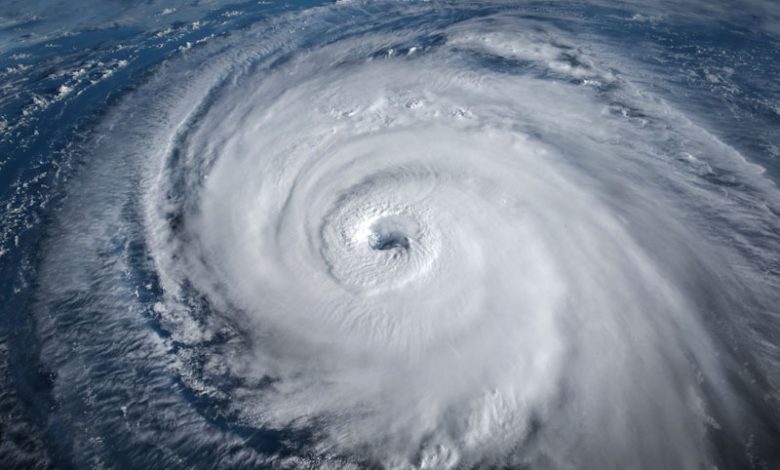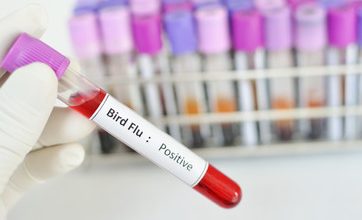Surviving this Hurricane Season

The winds howl and the skies darken as Hurricane Beryl makes landfall, a storm of unprecedented force poised to wreak havoc on the Texas coast. This formidable force of nature, which has already left a trail of destruction in its wake, demands our immediate attention and action, showing us this hurricane season will be more dangerous than ever, Beryl being the earliest forming Category 5 hurricane in known history. We have a long summer and autumn ahead of us if it’s going to be this bad this early.
The Ghosts of Katrina: A Painful Reminder
If there’s one thing we learned from Hurricane Katrina, it’s that the time to prepare is before the storm hits. The memories of Hurricane Katrina still haunt us, a painful reminder of nature’s devastating power and our vulnerability in the face of it. Katrina’s catastrophic impact in 2005 serves as a harrowing lesson. Levees failed, cities flooded, and lives were shattered. The death toll reached nearly 1,800, and the damage soared to an astronomical $125 billion. The slow and inadequate response compounded the misery, exposing severe deficiencies in disaster preparedness.

Katrina’s aftermath was a nightmare—families torn apart, homes destroyed, and a community left to rebuild from the ruins. The scars are still fresh for many, and the prospect of facing another powerful storm evokes a deep sense of dread. This is not a time for complacency or hesitation. Beryl’s approach demands swift and decisive action.
The tragic images of New Orleans submerged under water, people stranded on rooftops, and the chaotic evacuation efforts still linger in our collective memory. Katrina’s impact was a stark illustration of the power of nature and the critical importance of preparedness. It taught us that underestimating the potential of a storm could lead to devastating consequences, a lesson we must heed now more than ever.
Prepare and Protect
Now with Beryl making her way to the Texas coast, the call to action is clear. Authorities have issued hurricane and storm surge watches, urging residents to evacuate and prepare. The forecast warns of devastating storm surges, potentially fatal flooding, and winds strong enough to cause significant damage. The time to act is now.
The Importance of Reliable Food Supplies
Food security is a cornerstone of any emergency preparedness plan. During severe storms, supply chains can be disrupted, and access to fresh food may be limited. Canned goods emerge as an optimal choice in these scenarios.
Canned meat offers a high-protein, long-lasting food source that requires no refrigeration. This makes it ideal for situations where power outages can render fresh and frozen food unusable. The convenience of canned meat means that, even in the midst of chaos, you have a reliable source of sustenance. It’s also versatile, allowing you to create a variety of meals with minimal preparation. Stocking up on different types of canned meats, such as chicken, beef, tuna, and spam, ensures that you can maintain a balanced diet and avoid the monotony of repetitive meals.
To ensure the longevity of your canned goods, it’s essential to store them in a cool, dry place, steering clear of areas prone to temperature fluctuations, which can adversely affect the food’s quality. Regularly rotating your stockpile is crucial; use the oldest cans first and replenish your supply with fresh ones to keep everything in optimal condition. Additionally, consider investing in a manual can opener, as electric ones can become useless during power outages.
For meal ideas, the versatility of canned goods shines through. Create a quick and nutritious stew by combining canned meat with an assortment of canned vegetables and broth. For a simple yet delicious chicken salad, mix canned chicken with mayonnaise and your preferred seasonings. If you’re in need of something hearty and nutritious, use canned beef to craft flavorful tacos, paired with pre-packaged tortillas and salsa. These easy and convenient recipes can help you make the most of your canned food supply.
The Lifeline of Water
Water is arguably the most crucial resource during any emergency. The human body can only survive a few days without it, and during a storm like Beryl, access to clean, potable water can quickly become compromised.
Ensuring you have an adequate supply of water involves more than just filling a few bottles. For a short-term emergency, it’s recommended to store at least one gallon of water per person per day for a minimum of three days. For more extended periods, aiming for a two-week supply is prudent. Additionally, having methods to purify water, such as purification tablets, portable filters, or even small distillation units, is essential. These methods can help you turn potentially contaminated water sources into safe drinking water, thus extending your survival capabilities.
To ensure the safety and longevity of your stored water, it’s crucial to use food-grade containers, steering clear of any that previously contained chemicals. These containers should be stored in a cool, dark place to inhibit the growth of algae and bacteria. For effective management, label each container with the date it was filled, and make it a habit to rotate your supply every six months to maintain freshness and safety.
When it comes to purification methods, water purification tablets are an excellent choice for emergency kits due to their compact size and ease of use. For those who may need to drink from natural sources, portable water filters are invaluable, as they can effectively remove bacteria and protozoa. Boiling water is another reliable method for purification, though it does require a heat source, which may not always be accessible during power outages.
The Necessity of Medical Supplies
In the wake of a severe storm, medical facilities may be overwhelmed or unreachable. Having a well-stocked supply of medical essentials can be a lifesaver.
A comprehensive first aid kit is your first line of defense. This should include bandages, antiseptics, gauze, medical tape, scissors, and tweezers, along with a variety of over-the-counter medications such as pain relievers, antihistamines, and antidiarrheals. If you or a family member rely on prescription medications, ensure you have an adequate supply to last through the emergency. Furthermore, considering any special medical needs is crucial – this might include insulin for diabetics, inhalers for asthmatics, or epi-pens for severe allergies. Being prepared on the medical front ensures that minor injuries and health issues don’t escalate into serious problems due to lack of immediate care.
To protect your medical supplies from moisture and potential flooding, store them in a waterproof container. It’s also essential to keep medications in their original containers with labels intact to prevent any confusion and ensure correct dosages. Regularly checking the expiration dates of your medical supplies and replacing items as needed is crucial to maintaining an effective emergency kit.
For family members with specific medical needs, it’s wise to create a personalized emergency kit that includes all their necessary supplies. Additionally, consider taking a basic first aid and CPR course to enhance your ability to handle medical emergencies during a crisis. These preparations can make a significant difference in ensuring the well-being of you and your loved ones in an emergency.


Staying Connected and Safe
Power outages are a common and often long-lasting consequence of severe storms. Having alternative power sources can make a significant difference in maintaining safety and a semblance of normalcy.
Portable generators are invaluable, providing the ability to power essential appliances and maintain electricity for lights, refrigerators, and medical devices. Ensuring you have a safe and sufficient fuel supply for your generator is equally important. Solar chargers offer a sustainable option for keeping small electronics like phones, radios, and flashlights operational. Additionally, stocking up on a variety of batteries ensures that you can power critical devices and remain connected with the outside world.
When choosing a generator, ensure it has sufficient wattage to power all your essential devices. Store fuel in approved containers, keeping it in a well-ventilated area away from living spaces to avoid any safety hazards. Regular maintenance of your generator, following the manufacturer’s instructions, is crucial to ensure it operates smoothly when needed.
For solar chargers, invest in a high-quality model with a robust battery bank to store energy efficiently. Position the solar panels in a location with maximum sunlight exposure to optimize charging efficiency. Regularly clean your solar chargers, keeping them free of debris to maintain their effectiveness.
When it comes to batteries, stock up on a variety of sizes, including AA, AAA, and D, to power different devices. Store them in a cool, dry place to extend their shelf life. Consider using rechargeable batteries along with a solar-powered charger for a more sustainable and long-term power solution.
Conclusion
Preparing for Tropical Storm Beryl involves more than just a checklist; it requires a strategic approach to ensure you and your family can navigate the challenges it brings. Canned meat provides a dependable food source, water is vital for survival, medical supplies address health concerns, and alternative power sources keep you connected and safe. By focusing on these essentials, you can face Beryl with confidence, knowing that you have taken the necessary steps to protect yourself and your loved ones. In the world of prepping, being over-prepared is always better than being under-prepared. Stay vigilant, stay ready, and ensure your preparedness plan covers these critical areas.
Incorporating these elements into your emergency preparedness plan not only increases your chances of surviving a severe storm but also enhances your overall resilience in the face of unexpected disasters. Remember, the key to effective prepping is not just having supplies but understanding how to use them and maintaining them so they are ready when you need them most.







